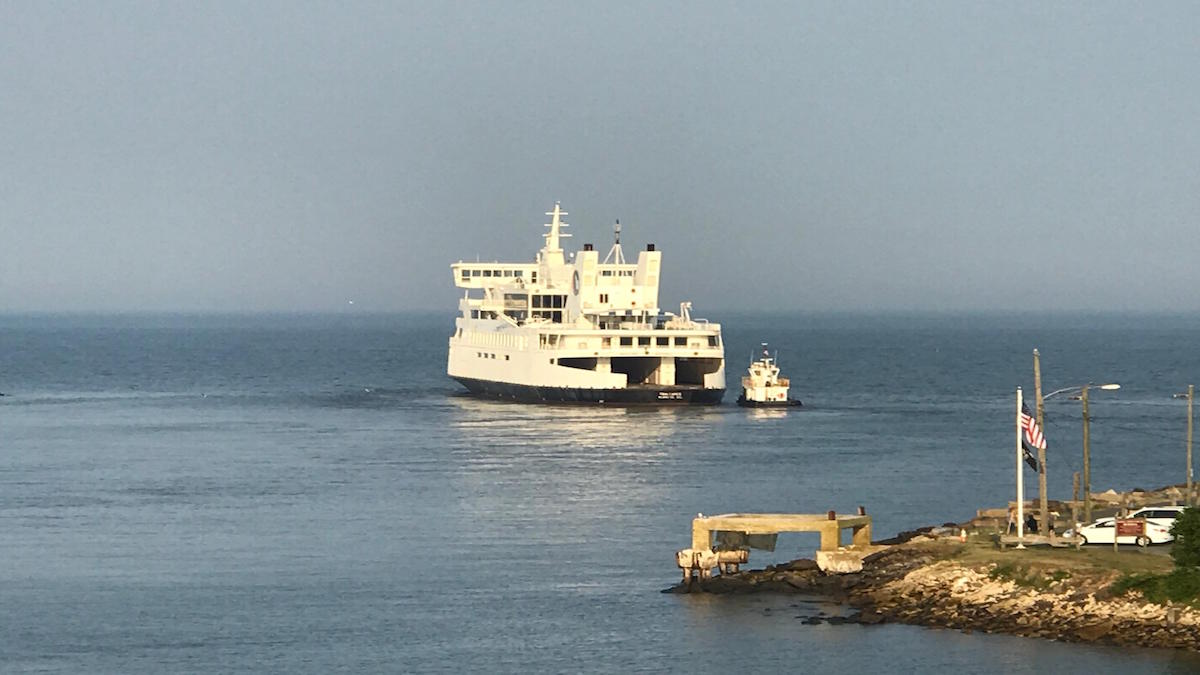Ferry to be converted into artificial reef in Delaware

Courtesy of the Delaware River and Bay Authority.
DNREC has purchased a ferry vessel to convert it into an artificial reef.
A ferry that once carried passengers up and down the Delaware Bay will be converted into an artificial reef, and sunk to the bottom of the Atlantic Coast in Delaware, to provide marine habitat and recreational opportunities for boaters, anglers and divers.
Delaware’s Department of Natural Resources and Environmental Control purchased the MV Twin Capes ferry vessel from the Delaware River and Bay Authority last week for $200,000.
The DRBA sold the costly vessel to DNREC after a five-year search to find a buyer proved unsuccessful.
“We’re pleased to be able to partner with DNREC on this worthwhile environmental project,” said Heath Gehrke, Director of Ferry Operations, in a statement.
“During the sale process, it was apparent that the market was thin for such a specialized vessel. For us, it made sense to partner with DNREC on this artificial reef project to benefit the divers and sport fishermen of Delaware, New Jersey and Maryland.”
The MV Twin Capes was operated at the Cape May-Lewes Ferry, which is owned by the DRBA and has carried more than 45 million passengers since 1964.
The vessel, which was declared surplus property in 2010 and mothballed in 2013, hasn’t traveled the Delaware Bay route between Cape May, N.J. and Lewes in four years.
The MV Twin Capes was causing a financial burden, requiring 17 crew members for its operation and using 126 gallons of fuel per hour—almost 50 percent more crew and about 25 percent more fuel than other DRBA ferries. The DRBA was able to save about $1.1 million when it mothballed the vessel.
The MV Twin Capes was one of the three original vessels, built at Todd Shipyards in Houston, in 1974. The 320-foot long vessel had a carrying capacity of 895 people and 100 vehicles.
The Cape May-Lewes Ferry has three vessels remaining in its fleet; MV Delaware, MV New Jersey and MV Cape Henlopen.
In addition to the sale of the vessel, about $230,000 worth of equipment, electronics and engine components has been or will be removed from the vessel for resale.
Delaware has 14 permitted artificial reef sites, most of which are in the Delaware Bay, while four are located in the Atlantic Ocean. The Mid-Atlantic region has very little natural exposed rock, or coral reefs that build structure and attract fish, said DNREC’s reef program coordinator Jeff Tinsman.
He said the state’s other artificial reefs have proven biologically successful, and bring in an estimated $7 million a year to Delaware, southern New Jersey and Ocean City, Md.
The recently purchased vessel is planned to be sunk on the Del-Jersey-Land Reef site, which was developed to provide anglers from Delaware, Maryland and New Jersey a fishing site.
The entire project will cost around $800,000, according to Tinsman, paid with sportfish restoration funds from the U.S. Fish and Wildlife Service, which come from taxes paid by fishers and anglers on fishing and boating equipment.
Tinsman said the reef will attract large numbers of sea bass, as well as bait fish that attract predatory fish, creating new fishing and scuba diving opportunities.
“This reef will develop the entire food chain right there in one place, and should be one of the best vessels we’ve ever sunk,” he said.
DNREC Secretary Shawn Garvin said the conversion, set to take place next year, will allow fish species to take advantage of the “rich and spacious” habitat.
“The Twin Capes is one of the finest reefing candidates DNREC has ever seen, and as an artificial reef, it will be unparalleled as a fish habitat and a spectacular dive for exploration,” he said in a statement. “Adding the Twin Capes to Delaware’s artificial reef system is another investment in Delaware’s conservation economy by DNREC that also brings a trove of environmental benefits.”
WHYY is your source for fact-based, in-depth journalism and information. As a nonprofit organization, we rely on financial support from readers like you. Please give today.





